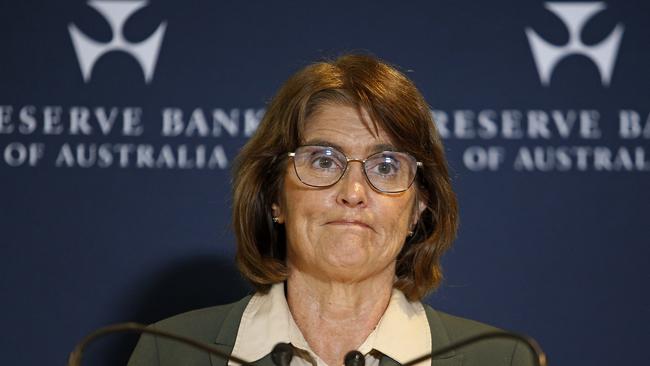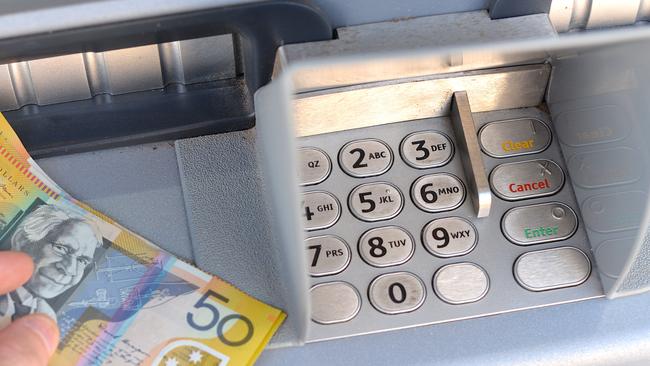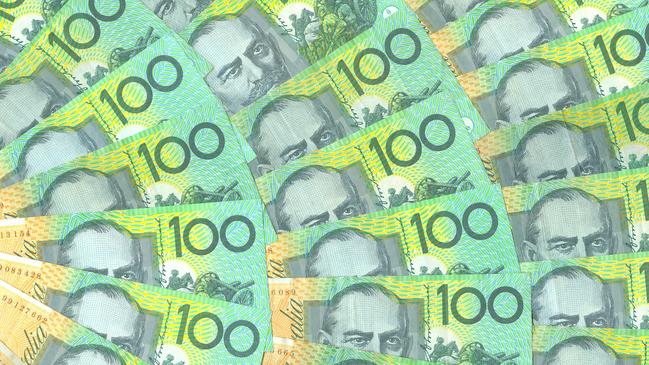Warning for savers after banks slash savings interest by more than RBA cut
Aussies with hard earned cash in certain savings accounts have been warned to consider moving their money following a stunning bank change.

Households with higher savings balances have been dealt a heavy blow amid the Reserve Bank’s decision to cut the cash rate.
Mozo data shows some banks are moving faster to slash savings rates than mortgage rates, cutting by more than the 0.25 per cent RBA cut in some cases.
From Friday, NAB, AMP, BOQ, and ME Bank are cutting deposit rates by up to 0.35 per cent, but the home loan products they have announced won’t see reductions until at least next week.
Mozo money expert Rachel Wastell said some borrowers who have savings with the same bank would lose out on interest on their hard earned cash before they see any mortgage savings.
MORE: Winners and surprise losers of rate cut

MORE: How 33yo travelled Australia for free
“Borrowers might be celebrating the RBA’s rate cut, but savers are getting the short end of the stick – again. While banks have been quick to slash savings rates, some mortgage holders won’t see relief for weeks,” she said.
“For many Aussies, their hard-earned savings are earning less interest before their mortgage relief even kicks in.
“The big question is: if banks can move so fast to cut savings rates, why does it take longer to pass on home loan reductions? The reality is, banks adjust rates in ways that best protect their bottom line – and right now, it’s savers feeling the pinch.”
MORE: Sneaky move banks made before rate cut

Experts warned that reduced interest payments on cash in the bank could effectively make the net returns on savings zero, or below zero, once accounting for inflation.
If the real returns on savings were to fall below zero it would mean that inflation is higher than the interest earned on savings, eroding the purchasing power of the money over time.
Simon Arraj, founder of investment management platform Vado Private, said the impact of lower interest would be “hard” for those with savings in term deposits and other cash accounts.
He noted that returns on bank online accounts were lower than inflation, with December quarterly inflation at 2.5 per cent compared to the average 1.75 per cent returns on online savings accounts.
MORE: ‘Changed everything’: stubborn homeowners lose fortune

And returns are set to get worse, Mr Arraj said. “Savings rates could fall further this year after the February rate cut,” he said.
The real returns on one-year term deposits were only marginally better, Mr Arraj added.
Bank one-year term deposits rates currently averaged 3.35 per cent a year, well below the nearly 4 per cent rate a year earlier, he noted.
“The real return on such deposits is less than 1 per cent per annum. Investors would be wise to reassess high allocations to cash,” Mr Arraj said.
“In an environment, where inflation could reignite given Trump’s tariffs, and interest rates could fall further on savings accounts in 2025, investors should be cautious about investing too much in cash.”

RBA Governor Michelle Bullock announced Tuesday that the cash rate would drop 0.25 per cent to 4.1 per cent. Many banks have since announced reductions to both their lending rates and rates paid to savers.
Canstar finance analyst Sally Tindall said many savers would need to look closely at the rates they are getting and consider if they would get a better return if there money was elsewhere.
“Cash rate cuts are always a double-edged sword and unfortunately (this week’s cut) will be a bitter pill for anyone with savings in the bank,” Ms Tindall said.
“Australia’s biggest bank, CBA, has softened the sting for some savers, cutting its NetBank Saver account by 0.20 percentage points. However, at just 2.15 per cent ongoing, savers can do a lot better with their hard-earned money.

“If you’ve got money in the bank, try and keep the dream alive by shopping around for a more competitive interest rate.
“After this cash rate cut filters through there are still likely to be a handful of banks offering at least one ongoing saving rate above 5 per cent.”
Research from Finder.com.au showed the average Australian has about $36,095 in the bank.
Additional research from BetaShares showed there was a considerable disparity in how much cash households had in each area, with some households in the country’s more affluent areas holding an average $200,000 in spare cash. This included in Sydney suburbs Rushcutters Bay and Balmain.
These households coexisted a large share of families who had less than $1000 in the bank.
The Demographics Group co-founder Simon Kuestenmacher said most people would only have large sums of money in the bank as opposed to invested if they were planning a large purchase.
Originally published as Warning for savers after banks slash savings interest by more than RBA cut

